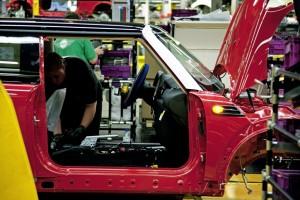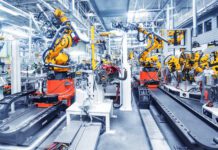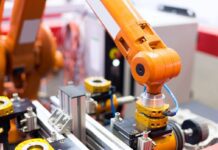The Australian Industry Group (Ai Group), Australia’s peak manufacturing body, has questioned the accuracy of the new Productivity Commission (PC) report on the automotive sector, which predicts just 40,000 car sector job losses when car making in Australia ends in 2017.

Ai Group Chief Executive Innes Willox said the commission’s report seriously underestimated the impact of the demise of Australia’s car making industry.
“The Productivity Commission’s final report into Australia’s Automotive Manufacturing Industry released today seriously underplays the impact of the end to car making in Australia and should be treated with caution,” Mr Willox said yesterday.
“The report fails to acknowledge that the situation facing the auto sector is not just another minor ‘adjustment’ in the economy; it represents the virtual closure of an entire industry. This will happen within a relatively short span of time and it will affect a large number of businesses, employees and communities.”
Mr Willox labelled the commission’s assessment on the possible job loss as “optimistic” and pointed to a report by the Federal Chamber of Automotive Industries (FCAI), which estimates up to 90% of the industry would close or move offshore once car making in Australia ends in late 2017.
“The Commission predicts that 40,000 people will lose their jobs. They assume that 80% of workers in the direct auto assembly workforce plus 40% of workers in the automotive components supply chain (including components for vehicles other than passenger cars) will be retrenched. This is considerably more optimistic than other estimates of future job losses.”
Mr Willox also questioned the commission’s assessment that 60% of component makers would be able to move into exports or other industries with no extra government assistance, saying those markets were already crowded and extremely competitive, with many auto components suppliers already operating in them.
He also voiced his concerns regarding the assessment that two-thirds of the 40,000 retrenched workers would find another job based on the experience of 700 Mitsubishi workers retrenched in 2004.
“This is despite strong evidence that the national jobs market is already considerably weaker than it was a decade ago and is set to weaken further, with both Treasury and the RBA forecasting a rising national unemployment rate from here. This time around, there will be far more displaced auto workers in a very concentrated geography and with far fewer local alternative employment options, compared to when Mitsubishi closed. Among the Mitsubishi workers for example, about 10% found a new job with other auto manufacturing businesses and another 20% found work elsewhere in manufacturing. This demise of the auto assembly sector means those results simply cannot be replicated again, and certainly not for 40,000 workers.”
“The Australian Industry Group strongly encourages the Government to continue talking directly to impacted businesses up and down auto supply chains in assessing the steps that can be taken to actively build opportunities both for employees and businesses over the next couple of years as the auto assemblers wind down their operations,” Mr Willox said.




















